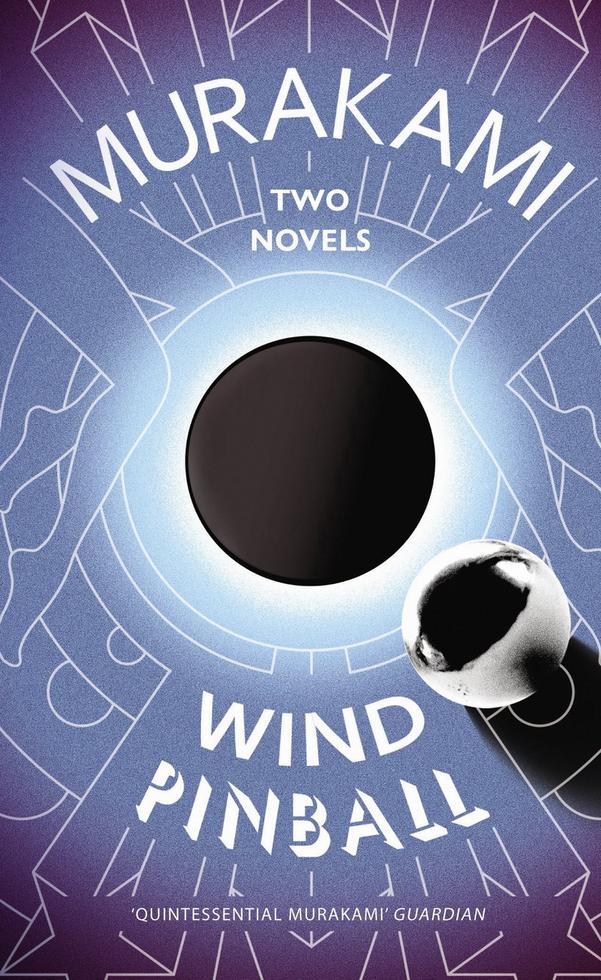{{ _getLangText('m_detailInformation_goodsActivityText') }}
{{ activityObj.name }}
{{ _getLangText('m_detailInformation_goodsActivityText') }}
{{ item.activityName }}
{{ _getLangText('m_detailInformation_goodsActivityBuyButText') }}
{{ _getLangText("m_detailIntroduction_goodsIntroductionText") }}
Haruki Murakami’s first two novels, available for the first time in English outside Japan. With a new introduction by the author.
'If you’re the sort of guy who raids the refrigerators of silent kitchens at three o’clock in the morning, you can only write accordingly.
That’s who I am.'
Hear the Wind Sing and Pinball, 1973 are Haruki Murakami’s earliest novels. They follow the fortunes of the narrator and his friend, known only by his nickname, the Rat. In Hear the Wind Sing the narrator is home from college on his summer break. He spends his time drinking beer and smoking in J’s Bar with the Rat, listening to the radio, thinking about writing and the women he has slept with, and pursuing a relationship with a girl with nine fingers.
Three years later, in Pinball, 1973, he has moved to Tokyo to work as a translator and live with indistinguishable twin girls, but the Rat has remained behind, despite his efforts to leave both the town and his girlfriend. The narrator finds himself haunted by memories of his own doomed relationship but also, more bizarrely, by his short-lived obsession with playing pinball in J’s Bar. This sends him on a quest to find the exact model of pinball machine he had enjoyed playing years earlier: the three-flipper Spaceship.
About the Author:
Haruki Murakami is the author of many novels as well as short stories and non-fiction. His books include Norwegian Wood, The Wind-Up Bird Chronicle, Kafka on the Shore, 1Q84, What I Talk About When I Talk About Running, Colorless Tsukuru Tazaki and His Years of Pilgrimage and The Strange Library. His work has been translated into more than 50 languages, and the most recent of his many international honours is the Jerusalem Prize.
'If you’re the sort of guy who raids the refrigerators of silent kitchens at three o’clock in the morning, you can only write accordingly.
That’s who I am.'
Hear the Wind Sing and Pinball, 1973 are Haruki Murakami’s earliest novels. They follow the fortunes of the narrator and his friend, known only by his nickname, the Rat. In Hear the Wind Sing the narrator is home from college on his summer break. He spends his time drinking beer and smoking in J’s Bar with the Rat, listening to the radio, thinking about writing and the women he has slept with, and pursuing a relationship with a girl with nine fingers.
Three years later, in Pinball, 1973, he has moved to Tokyo to work as a translator and live with indistinguishable twin girls, but the Rat has remained behind, despite his efforts to leave both the town and his girlfriend. The narrator finds himself haunted by memories of his own doomed relationship but also, more bizarrely, by his short-lived obsession with playing pinball in J’s Bar. This sends him on a quest to find the exact model of pinball machine he had enjoyed playing years earlier: the three-flipper Spaceship.
About the Author:
Haruki Murakami is the author of many novels as well as short stories and non-fiction. His books include Norwegian Wood, The Wind-Up Bird Chronicle, Kafka on the Shore, 1Q84, What I Talk About When I Talk About Running, Colorless Tsukuru Tazaki and His Years of Pilgrimage and The Strange Library. His work has been translated into more than 50 languages, and the most recent of his many international honours is the Jerusalem Prize.


{{ _getLangText('m_detailAuthorBookList_titleText') }}
{{ _getLangText('m_asideSeriesBookListBut_moreText') }}>
{{ _getLangText("m_recently_viewed_products_titleText") }}